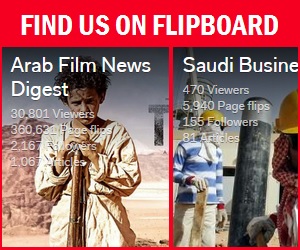The Freedom Meme
A new report from the University of Washington’s Project on Information Technology and Political Islam comes to the conclusion that social media played a central role in the events we have all come to call ‘The Arab Spring’.
Ever since the events of early 2011 started to unfold around the region, there has been debate as to whether social media really had any impact or importance to events themselves, or whether Twitter, Facebook, YouTube et al were merely reflective of events and driven by overseas commentators rather than activists on the ground. The PITPI report is based on deep dive analysis of political website traffic, blogs, Facebook, Twitter and YouTube traffic, including analysis of over three million tweets sent over the period.
The report lists three key findings:
1) Social media played a central role in shaping political debates in the Arab Spring.
2) A spike in online revolutionary conversation often preceded major events on the ground.
3) Social media helped spread democratic ideas across international borders.
In analysing the traffic online from the period between January and April 2011, the report makes a number of interesting points. One such, for instance, is that there has been a significant and growing participation from women – 49% of Tunisian Facebook users are women, 36% of Egypt’s. The report points to women becoming online activists where they could not be active on the streets – some 30% of Twitter commentators in Tunisia were women and similarly, 33% of the active Tweeters in Egypt were female.

Logged Number of Tweets on #sidibouzid, by Location. The blue bar indicates the period in which journalists began reporting that protests had reached the level of “thousands” of participants. Rights: The Project on Information Technology and Political Islam, University of Washington’s Department of Communication (Creative Commons).
For those of us who were tracking events online day by day, the PITPI report is an interesting refresher as it looks back over events and adds numerical analysis to the narrative. The rhythm of Twitter traffic in particular is fascinating as the ebb and flow of tweets from inside Tunisia, Egypt and other neighbouring countries is mirrored by that of international commentary. 18% of Tweets about the Tunisian uprising came from within the country. The resignation of Ben Ali prompted a spike in traffic that was mirrored by political blogposts and over 2,200 Tweets from around the region.
The report identifies what it calls a ‘freedom meme’, the movement of conversation around the region about freedom and change triggered by events in Tunisia. In Egypt, where young people are highly connected by mobiles and the Internet, the word spread quickly, with Wael Ghonim’s ‘We are all Khalid Said’ Facebook page, mourning a blogger killed by the security services, topping 300,000 users.
The report also looks at the role of viral video in spreading the ‘freedom meme’, with millions of views of videos posted from Tahrir square at a time when Egyptian state television was showing images of calm and empty streets.
All in all, the PITPI report is an interesting document that repays a read if you have a view on the ‘did or didn’t social media play a role’. Although the volumes of videos, Tweets and Facebook posts the report analyses are relatively small on a global scale, their ability to combine with technologies such as mobile and with strong word of mouth meant they had a disproportionately large impact on public opinion and debate.
I get a feeling the label ‘the freedom meme’ will stick, too…
Links
You can read more about the University of Washington PITPI’s ‘Opening Closed Regimes’ research study and download the full report here:
New study quantifies use of social media in Arab Spring (UW Today News)
Download the full report (PITPI website)
Want to read more?
If you liked reading this post , you might be interested in our past blog posts on Facebook usage in the Middle East and North Africa and the Arab Spring:
Tags: Alexander McNabb, Arab, Arab Spring, Arab World, blogs, Egypt, Facebook, Internet, MENA, Middle east, North Africa, politics, revolution, social media, Tunisia, Twitter, University of Washington, Websites



